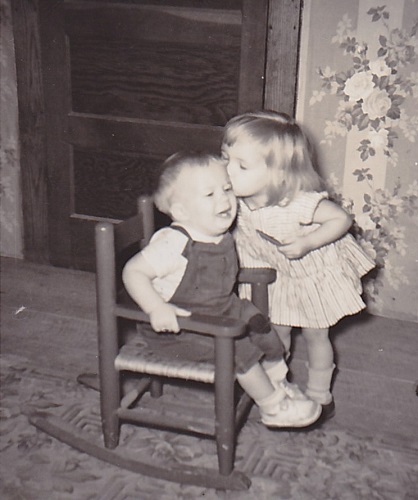At the Drop of a Hat
 My grandmother worked in her flowers at the drop of a hat. I wish I had inherited her green thumb.
My grandmother worked in her flowers at the drop of a hat. I wish I had inherited her green thumb.
My talent? I cry at the drop of a hat.
- Happy times? I cry.
- Sad times? I cry.
- Babies and puppies? I cry.
- Sad books or movies. I cry.
Tears come quickly, and almost anything causes them.
At the drop of a hat means suddenly and with little warning.
Many of us laugh at the drop of a hat. We find humor everywhere. People around us laugh at our laughter. What a hoot!
At the drop of the hat also means without delay.
Mention travel, and we pack our bags to hit the trail. We want to leave immediately, if not sooner.
This expression probably originated with dropping a hat as a signal.
According to The Free Dictionary, a dropped hat signaled “the start of a race or other contest” in the late 1800s.
A few people help others at the drop of a hat.
If they have it, they share it.
- Time
- Abilities
- Money
- Possessions
Without hesitation, they practice “What’s mine is yours.”
We read such a story in the Bible (Luke 10:25-37). Often called the parable of the good Samaritan, one man helped another who had been robbed and beaten. The Samaritan ignored differences in background and culture. He simply saw a need and met it.
Referring to the good Samaritan, Jesus said, “Go and do likewise” (Luke 10:37 NIV).
Thanks to Ginny Merritt for the suggestion.
Do you have an expression you want explained or a thought about this one? If so, please comment below.
Subscribe to receive my weekly posts by email and receive a free copy of “Words of Hope for Days that Hurt.”
If you enjoyed this post, please share it with your friends.

 We don’t want anyone to cry crocodile tears for us. Neither do we want to cry crocodile tears for anyone else.
We don’t want anyone to cry crocodile tears for us. Neither do we want to cry crocodile tears for anyone else. “Dry your tears. There is no need to cry over spilled milk.”
“Dry your tears. There is no need to cry over spilled milk.”